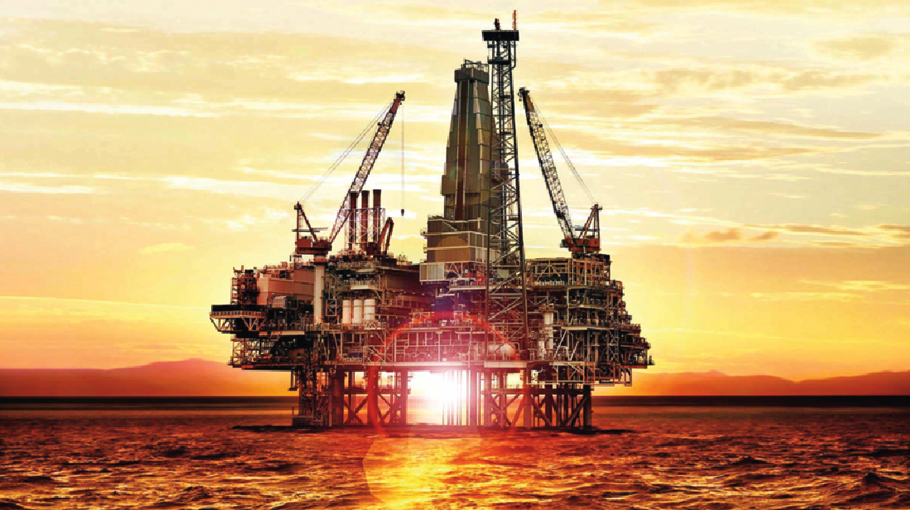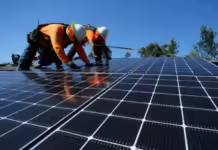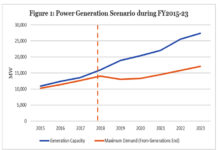Originally posted in Bangladesh Post on 13 December 2021

In a bid to get an accurate idea of the amount of mineral resources inside the maritime boundary of Bangladesh, the government is going to start a ‘Multi-Client survey’ to attract foreigners for oil and gas exploration for the first time.
Multi-client surveys should be done as soon as possible to get an accurate idea of the amount of mineral resources in the ocean, energy division officials said.
A consortium of Norwegian companies TGS and Schlumberger of France will start the survey in February next year. As part of the first phase, the consortium will conduct a 13,600 line kilometer 2-D Multi-Client seismic survey at sea.
Md. Shaheenur Islam, Director (Production Sharing Contract) of Petrobangla on Monday told Bangladesh Post that the multi-client survey will play a major role in the exploration of oil and gas at sea. Results will be available three months after the survey begins. The consortium will bear all the expenses of conducting the survey. In the future, those foreign companies interested in exploring for oil and gas at sea will buy the data of the survey.
Neighbouring India and Myanmar have already begun exploration and extraction of natural gas and oil from their territorial waters. To meet the domestic demand, Bangladesh is importing costly LNG (Liquefied Natural Gas) from the international market. Its own gas reserves are also declining. If the country finds a sufficient amount of oil and gas reserves in the Bay, it can help overcome the current crisis and save a huge amount of money, an expert said.
Due to poor response to international tenders for oil and gas exploration in the Bay of Bengal, the government decided to conduct a multi-client survey of the entire maritime area.
In 2015, Petrobangla invited international tenders for this survey. Five tenderers submitted their proposals. TGS- Schlumberger Consortium were selected as eligible in the tender evaluation. Petrobangla then finalized the proposal and sent it to the Energy Division to seek the approval of the Cabinet Committee for the contract. But the process was abruptly canceled and Petrobangla was instructed by the Energy Division to call for tenders again. There are allegations that the decision could not be taken due to pressure from a beneficiary group as their chosen company could not get the job.
Later, when the tender was called again, five proposals were submitted. The TGS-Schlumberger consortium was in first position again in the bidding process. The proposal for the agreement was then sent to the Cabinet Committee on Economic Affairs held on 3 August 2016 through the Energy Division.
Relevant sources said that it was also objected that the tender process for the service was not correct. Later, a five-member committee headed by Law Minister Anisul Haq was formed to verify the validity of the tender evaluation. About nine months later, a report from the Law Ministry was sent to the Cabinet Committee.
The proposal has also been stuck for a long time. It was finally approved by the Cabinet Committee in April 2019. In March 2020, Petrobangla signed a final agreement with TGS and the Schlumberger Consortium.
Badrul Imam, Honorary Professor of Department of Geology of University of Dhaka told Bangladesh Post that ‘the multi-client survey was supposed to start in 2015 last. Although it’s very late, it is good news for us.”
“Foreign companies are not interested in oil and gas exploration in the sea without adequate data. Multi-client seismic survey is a recognized method for this. Through which a preliminary idea of the geological structure and location of mineral resources at the bottom of the sea is obtained. The data from this survey will make companies interested in participating in oil and gas exploration there,” he added.
Badrul Imam said due to the survey data, India and Myanmar have been able to attract foreign companies to explore oil and gas at their ends. Bangladesh has lagged far behind due to not being able to conduct multi-client surveys.
However, for the first time, Bangladesh has started drilling work of a well named Kanchan-1 for gas in its maritime areas on September 29. Once the drilling work of the well is completed, the exploration activities of Maitri-1, Pitli-1 will start in phases.’
Experts have disclosed that there are possibilities of finding an estimated 1.9 trillion cubic feet (TCF) of natural gas from the 3 wells in Cox’s Bazar. However, it takes a total of six months, including three months for ensuring the presence of gas and three more months to determine commercial viability.
Indian state-owned ONGC Videsh Ltd, jointly with Oil India Ltd and Bangladesh Petroleum Exploration and Production Company Limited (Bapex) is drilling in the Bay of Bengal under Production Sharing Contracts (PSCs).
Currently, the country’s natural gas output is hovering around 3,100 million cubic feet per day (mmcfd), of which 600-700 mmcfd is regasified imported LNG. However the gas demand is more than 4,000mmcf, which is also increasing. The entire local production comes from onshore gas fields.
In March 2012, and July 2014, in historic victories at the UN Maritime Tribunal, Bangladesh got 111,000 square kilometers and 19,467 square kilometers from Myanmar and India respectively. Huge potentials of the oil and gas emerged after the settlement of the maritime boundary with India and Myanmar, but there is no progress yet in exploring the marine resources. Several foreign companies have left the sea without completing the exploration. International tenders for oil and gas exploration have also been repeatedly delayed due to lack of multi-client surveys.






